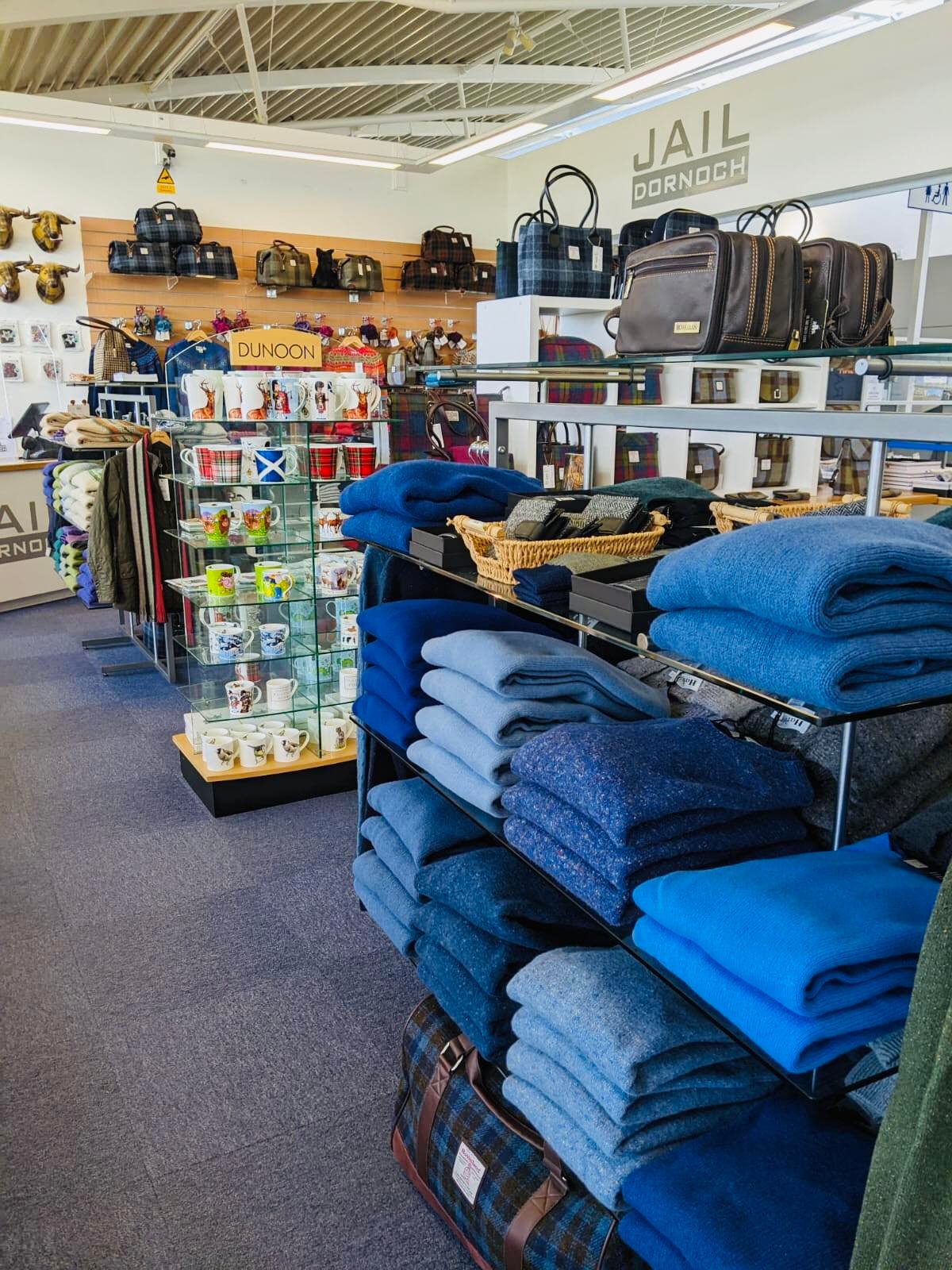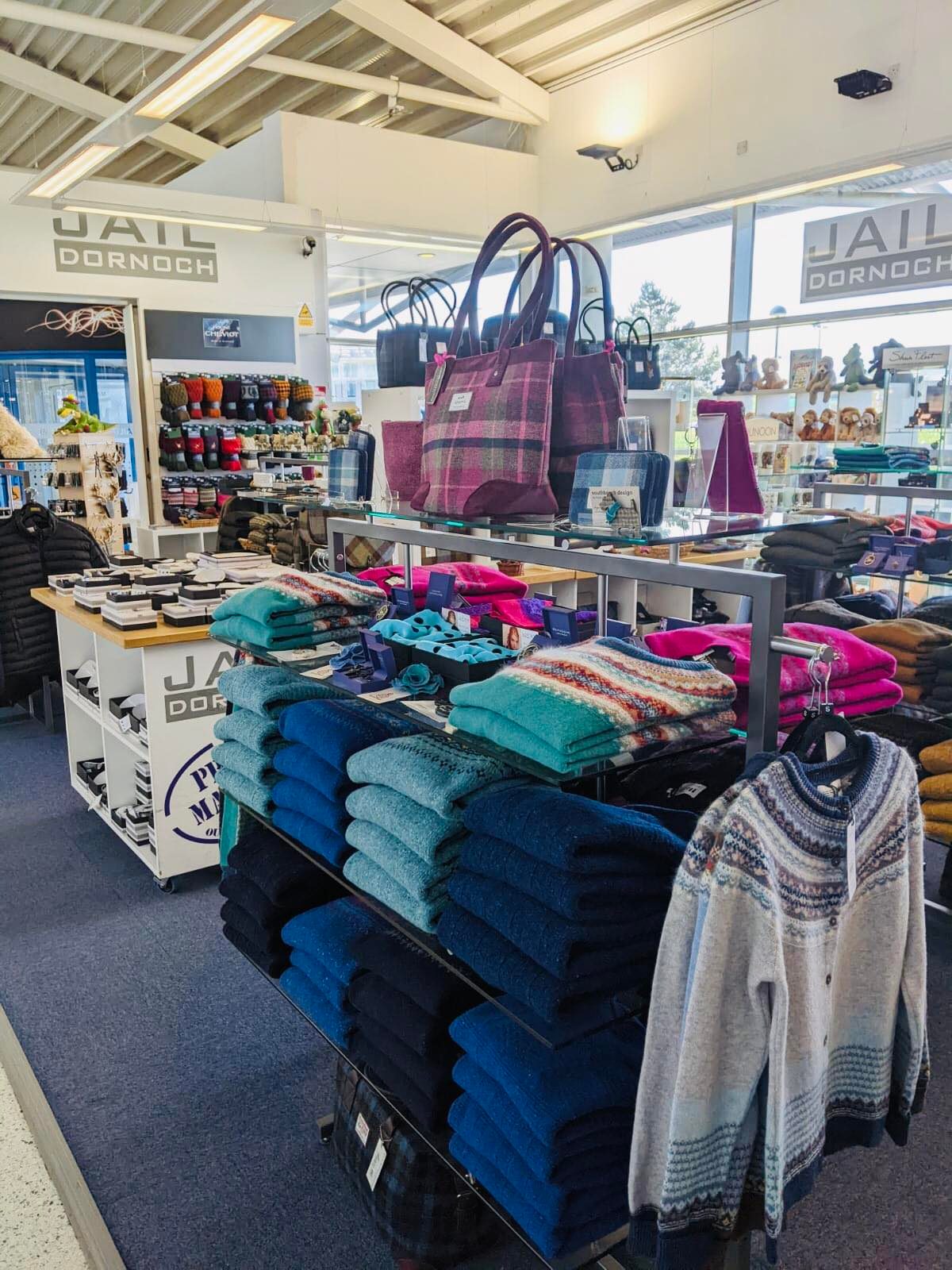What To Know About Airport Jail: Your Guide To Airport Holding Areas
Imagine planning a wonderful trip, maybe to a sunny spot near Coral Springs, Florida, or perhaps a journey to a bustling city like Karachi. You’ve checked your bags, cleared security, and you’re ready to go. But then, a sudden halt. Instead of heading to your gate, you find yourself being led to a quiet, often overlooked part of the airport, a place many people call an "airport jail." This unexpected turn of events can be pretty unsettling, you know? It’s not a common experience for most travelers, but it happens, and knowing a bit about it can certainly help if you ever find yourself in such a situation.
It’s a bit of a strange thought, isn't it? Airports, like Fort Lauderdale-Hollywood International Airport (FLL) or even smaller regional spots, are usually places of movement and excitement, not detention. Yet, behind the scenes, amidst the complicated system of aircraft support and passenger services that keep these places running, there are facilities for temporary holding. These spots are for folks who, for various reasons, can’t immediately continue their journey or enter the country. It’s a very different vibe from the busy terminals, that’s for sure.
So, what exactly is an "airport jail," and why would someone end up there? We'll explore what these areas are really like, the common reasons people get held, and, perhaps most importantly, how you can try to avoid such an unexpected stop on your travels. It’s good to be prepared, especially when you’re dealing with the vast and often complex operations of modern airports, whether you're flying private into a favorite spot or just looking for the cheapest way to get from nearby airports to Coral Springs.
Table of Contents
- What Exactly is an Airport Holding Area?
- Real-Life Scenarios: When Airport Detention Happens
- What Happens Inside an Airport Holding Space?
- How Airport Operations Can Impact Your Journey
- Tips to Steer Clear of Airport Detention
- People Also Ask (FAQ)
- Final Thoughts on Airport Travel
What Exactly is an Airport Holding Area?
When people talk about an "airport jail," they're usually referring to a temporary holding facility. This isn't like a traditional prison you might think of, with cells and long-term stays. Instead, it’s a secure space within the airport itself, managed by border control agencies or airport security, where individuals are kept for a limited time. It's often used when there's an immediate question about a person's right to enter a country or to continue their travel. So, it's really more of a waiting room, but with locked doors, you know?
Not a Typical Jail
These areas are designed for short-term stays, typically just a few hours or, at most, a day or two. The main goal is to process people who are inadmissible, perhaps awaiting a return flight, or those who need further questioning before they can move on. They don't have the same setup as a regular jail, and the conditions, while secure, are generally meant for brief periods. It's a bit of a grey area, but definitely not a long-term solution for anything, basically.
Why People Get Held
There are several reasons why someone might find themselves in one of these airport holding spots. Sometimes, it’s about paperwork; other times, it’s about a misunderstanding or a security concern. It’s often about ensuring everyone who enters a country meets the necessary requirements, which, as a matter of fact, can be quite strict.
Looking at Travel Papers
This is a very common reason. If your passport is expired, your visa isn't right for your trip's purpose, or you simply don't have the proper documents to enter a country, you could be held. For instance, if you're trying to get into the U.S. at FLL or MIA and your papers aren't in order, border agents will need to figure things out. They might send you back on the next flight, or hold you while they sort it all out. It's pretty important, as you can imagine.
Security Issues
Airports are, understandably, on high alert when it comes to security. If someone raises a red flag for security reasons, perhaps they're on a watch list, or there's a perceived threat, they might be detained for questioning. My text even mentions "a bomb threat" in the context of airport operations, highlighting how serious security matters are. These situations are taken very seriously, obviously.
Health Checks
In some cases, especially during public health crises, travelers might be held if they show signs of illness or if they've come from an area with a known health risk. This is for the safety of everyone, you know, and it's a protocol that airports have to follow.
Other Legal Stuff
Sometimes, it's about outstanding legal matters. Maybe there's an old warrant, or you've broken a law while traveling. These situations can lead to a temporary hold while authorities decide what to do next. It's a bit complicated, but it happens.
Real-Life Scenarios: When Airport Detention Happens
It's easier to grasp the idea of an airport holding area when you think about actual situations. These aren't always dramatic events; sometimes, they're just a series of unfortunate circumstances. Like, you know, just a small mix-up that gets bigger.
The Unexpected Visa Problem
Imagine you're flying from Pakistan to the U.S., perhaps connecting through a major hub like Istanbul, then heading to FLL. You thought your tourist visa was good to go, but upon arrival, the border agent sees something amiss. Maybe it expired a day earlier, or it’s the wrong type for your stated purpose. Suddenly, you're not entering the country. You're taken to a holding area while they arrange your flight back home. It's an honest mistake, but the rules are pretty strict, as a matter of fact.
Misunderstandings at Security
Sometimes, a traveler might accidentally have a prohibited item in their carry-on, or their behavior might be misinterpreted. For instance, someone might make a joke about security that is taken very seriously. In the complex world of airport operations, where "personal dramas" can unfold alongside strict protocols, any perceived threat can lead to immediate detention for questioning. This can happen at any airport, whether it’s a large international one or a smaller regional spot.
Health Alerts and Travel
During global health scares, airports often implement special screening procedures. If you arrive from a region with a known outbreak and show symptoms, or if you simply haven't completed necessary health declarations, you might be held for further assessment. This is for public safety, you know, and it’s a fairly standard procedure.
Unresolved Past Issues
It’s not unheard of for someone with an old, unresolved legal issue to be flagged at an airport. This could be something as simple as an unpaid fine or a more serious warrant. When your name pops up in the system, airport authorities might hold you until they can confirm your identity and the nature of the issue. It's a bit of a surprise for many people, honestly.
What Happens Inside an Airport Holding Space?
If you find yourself in an airport holding area, it’s natural to feel confused or worried. Knowing what to expect can make a big difference, though. These spaces are generally monitored, and you’ll be under the care of border officials or airport police. It's not a fun place to be, but it's usually not a scary one either, just a bit isolating, you know?
The First Steps
Upon arrival, officials will usually explain why you're being held. They'll take your passport and other travel documents. You might be asked some questions, and your belongings might be searched. It’s all part of their process to figure out what's going on, basically.
Knowing Your Rights
Even in a holding area, you have certain rights. You usually have the right to contact your embassy or consulate, and in some cases, to speak with a lawyer. It’s really important to know this, and you should ask for these things if you feel you need them. For more details on travel rights, you could learn more about traveler protections on our site.
The Waiting Period
How long you stay can vary a lot. It might be just an hour or two while they verify something, or it could stretch into a day or more if they need to arrange a return flight or conduct a more thorough investigation. During this time, you might be offered basic amenities like water, snacks, or a place to rest. It’s pretty much a waiting game, in a way.
Support and Help
While it feels like you’re alone, there are often resources available. Your country’s diplomatic mission can offer assistance, and sometimes, airport staff can provide information or help connect you with family. It's not a completely isolated experience, thankfully.
How Airport Operations Can Impact Your Journey
Understanding the vastness of airport operations, as described in "My text," helps to see why these holding situations exist. Airports like Fort Lauderdale-Hollywood International Airport (FLL), which is just 15 miles from Coral Springs, or even major international hubs like those in Pakistan, are incredibly complex places. They manage millions of passengers, countless flights, and a complicated system of services, from aircraft support to passenger check-ins. This intricate dance means that even small disruptions or strict protocols can have big ripple effects.
The Vastness of Airport Systems
Consider FLL, PBI, and MIA, which are key airports near Coral Springs, Florida. These are huge operations, each with specific rules and procedures. My text points out that "airport operations are extremely complex, with a complicated system of aircraft support services, passenger services, and aircraft control services." This complexity means that every person passing through is part of a massive, regulated flow. Any deviation from that flow, like a questionable document or a security alert, has to be addressed immediately. It's a very big machine, you know?
Security's Big Role
Security is paramount at any airport. The mention of "a bomb threat" in my text, even in a fictional context, underlines the constant vigilance required. Border control and security personnel are always on the lookout for anything that might jeopardize safety. This means that if you're flagged for any reason, even a minor one, you might be held for further investigation. It's not personal, it's just how they keep everyone safe, obviously.
Passenger Flow and Potential Hiccups
Airports are designed to move people efficiently. "Connectivity ratings are based on the airport's flight routes to other airports," showing how interconnected these places are. But this constant movement also means that if one person causes a delay or requires special attention, it can affect the whole system. Being held, even briefly, is part of managing that flow when something isn't quite right. It's like, you know, a small cog in a huge machine.
Travel Planning and Airport Choices
My text mentions comparing airports like FLL, PBI, and MIA, and how "when we're on the road, rather than always picking an airport that is close to our destination, we try to see if there might be another airport that would better fit our" needs. This idea of thoughtful travel planning extends to avoiding airport detention. Knowing the specific entry requirements for your chosen destination, and for any transit countries, is just as important as finding the cheapest flight or the nearest airport to Coral Springs. It's all part of being a prepared traveler, really.
Tips to Steer Clear of Airport Detention
The best way to deal with an airport holding area is to never end up in one. While some situations are out of your control, many can be avoided with careful planning and awareness. It's pretty straightforward, actually.
Double-Check Everything
Before you even leave for the airport, make sure all your travel documents are valid and up-to-date. This means your passport, any required visas, and even your flight itinerary. Check the expiration dates carefully. It sounds simple, but it’s probably the most important step, honestly.
Be Aware of Rules
Look up the entry requirements for your destination country and any countries you'll be passing through. Rules can change, so what was valid last year might not be valid today. This includes visa requirements, health declarations, and customs regulations. For instance, if you're traveling to a place like Santos Dumont Airport near Sugar Loaf Mountain, make sure you know what Brazil expects from visitors. You can find out more about international travel guidelines on our site.
Keep Your Cool
If you are questioned by airport officials, stay calm and cooperate. Answer their questions honestly and politely. Arguing or becoming agitated can make the situation worse. They are just doing their job, you know.
Seek Advice Before You Go
If you have any doubts about your eligibility to travel or enter a country, contact the embassy or consulate of that country well in advance. Getting clear information beforehand can save you a lot of trouble later. It's always better to be safe than sorry, as a matter of fact.
People Also Ask (FAQ)
Here are some common questions people have about airport holding areas:
What is the difference between an airport holding area and a regular jail?
An airport holding area is a temporary space within the airport, usually for short stays (hours to a couple of days), for people with travel document issues or security concerns. A regular jail is for people accused or convicted of crimes, designed for longer stays, and part of the broader criminal justice system. They're very different in their purpose and setup, you know?
How long can someone be held in an airport holding area?
The length of time can vary quite a bit, from just a few hours to a day or two. It really depends on the reason for the detention and how quickly officials can resolve the issue, like arranging a return flight or verifying documents. It's pretty much on a case-by-case basis.
Can I contact family or a lawyer if I'm held at the airport?
Yes, generally you have the right to contact your country's embassy or consulate, and in many situations, to speak with a lawyer. It's important to ask for these rights if you find yourself in such a situation.
Final Thoughts on Airport Travel
Navigating airports, from the major hubs like those near Rawalpindi, Pakistan, to smaller local airports, is usually a smooth experience for most people. However, being aware of potential hiccups, like the possibility of temporary detention, is just part of being a smart traveler. By being prepared, understanding the rules, and staying calm, you can greatly reduce the chances of an unexpected stop on your journey. For more information on travel regulations, you can check resources like the IATA Travel Centre's Timatic database, which is a really helpful tool for checking entry requirements.

Jail at the Airport – The Jail Dornoch

Jail at the Airport – The Jail Dornoch

Jail at the Airport – The Jail Dornoch